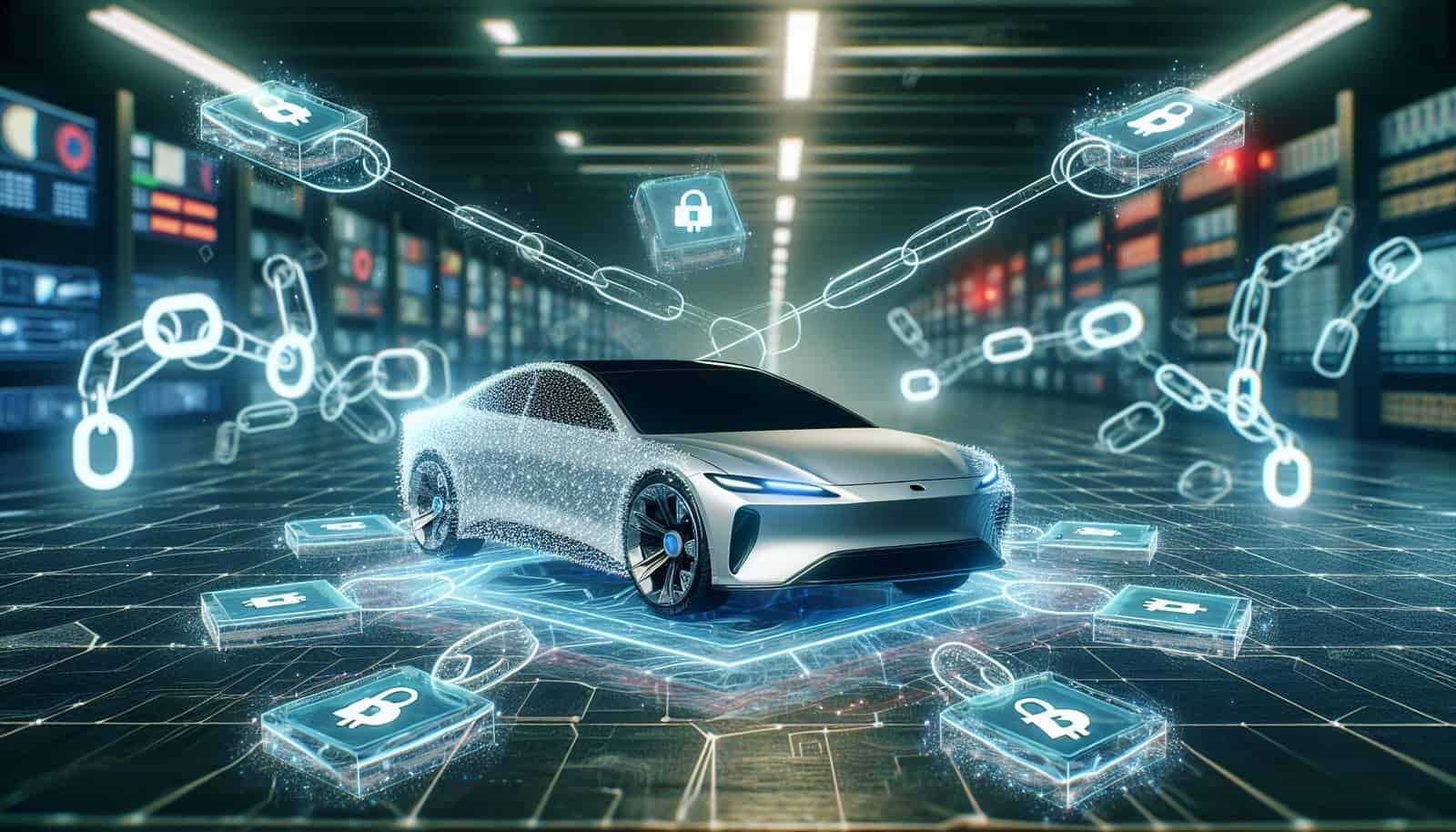Have you ever wondered how blockchain technology is revolutionizing the automotive industry? It’s an exciting development that promises to transform the way you interact with vehicles, service providers, and even the cars themselves. As the automotive world embraces the digital age, blockchain emerges as a vital player, ensuring transparency, security, and efficiency in a multitude of processes.
Blockchain might seem like a buzzword thrown around in contexts ranging from finance to healthcare, but its application in the automotive sector is as groundbreaking as it is diverse. Whether it’s enhancing vehicle tracking, managing data, or even facilitating smoother transactions, Automotive Blockchain (AUTO) is reshaping the way vehicles are built, sold, and maintained.

What is Automotive Blockchain (AUTO)?
Automotive Blockchain, often abbreviated as AUTO, integrates blockchain technology within the automotive industry to streamline operations, secure data, and enhance transparency. Imagine an industry where every transaction, from manufacturing to sales, is efficiently documented and almost immune to tampering; that’s the promise of AUTO. By using a decentralized ledger system, blockchain records every transaction across a distributed network, reducing the risk of fraud and errors.
Why Blockchain in Automotive?
Blockchain technology brings unique advantages to the automotive sector. Primarily, it offers unparalleled security. By its nature, blockchain is resistant to data modification, making it an excellent tool for preventing fraud. It also allows for greater transparency and auditability of records, which is crucial in manufacturing and maintaining automotive components. Furthermore, it improves traceability within the supply chain, ensuring that all parts and processes comply with industry standards.
Key Benefits of Automotive Blockchain
Let’s discuss how blockchain could influence key aspects of the automotive industry:
Security and Safety: Blockchain’s decentralized nature makes it hard for hackers to alter data, providing a secure environment for sensitive information.
Traceability: Every part and batch can be traced back to its origin, ensuring authenticity and adherence to quality norms.
Efficiency: Automating transactions and information-sharing processes can lead to substantial cost savings and quicker operations.
Transparency: Allows all stakeholders, from manufacturers to customers, to access uniform information, building trust within the ecosystem.
Sustainability: Efficient tracking ensures fewer resources are wasted, promoting sustainable practices.
Applications of Blockchain in the Automotive Industry
The potential applications of blockchain in the automotive sector are vast. Here, we’ll explore some of the most significant ones:
Vehicle Manufacturing and Supply Chain Management
A crucial aspect of the automotive industry is the manufacturing process and the associated supply chain. Blockchain can enhance this by providing a transparent ledger that tracks every component’s lifecycle from the initial manufacturing process to its integration into a vehicle.
Efficient Tracking: With blockchain, you can trace each part’s origin, ensuring quality and compliance.
Enhanced Accountability: Manufacturers can use blockchain to enforce supplier accountability, as every transaction is recorded transparently.
Reduction of Frauds: Counterfeit parts are a significant issue in automotive markets, but blockchain can authenticate parts, minimizing fraud.
Automotive Sales and Finance
Blockchain in automotive sales and finance brings transparency and speed, ensuring all transactions are smooth and trustworthy.
Smart Contracts: These self-executing contracts with the agreement between buyer and seller encoded on a blockchain ensure prompt transactions.
Streamlined Documentation: Paperwork in sales (titles, registrations) can be digitized and stored securely on the blockchain.
Trustworthy Transactions: Buyers and sellers can directly interact without needing intermediaries, thanks to blockchain’s security features.
Autonomous Vehicles and Data Sharing
As autonomous vehicles become more prevalent, managing the vast amounts of data they generate becomes imperative.
Secure Data Handling: Blockchain can store data generated by autonomous vehicles securely and efficiently.
Data Sharing Among Manufacturers: Creates a trusted platform for manufacturers to share data that enhances vehicle AI.
User Privacy: Blockchain offers robust mechanisms to protect user data against unauthorized access.
Vehicle-to-Vehicle (V2V) Communication
V2V communication enhances driving safety by allowing vehicles to communicate with each other. Blockchain’s strong security framework ensures that this sensitive information is not compromised.
Secure Communication: Ensures that data exchanged between vehicles is protected and trustworthy.
Accurate Information: Blockchain provides a permanent history of messages, aiding in diagnostics and improving response times.
Traffic Management: Allows for the efficient flow of information to manage and optimize traffic in real-time.

Potential Challenges in Automotive Blockchain
Though blockchain presents numerous benefits, incorporating it into the automotive industry isn’t without challenges.
High Implementation Costs
Implementing blockchain solutions entails significant expenses in terms of technology and training. For smaller companies in the automotive industry, this could present a formidable barrier. However, as technology evolves, costs are expected to reduce, and accessibility will improve.
Regulatory Hurdles
With new technology comes the need for updated regulations. Governments and institutions globally are still grappling with how to regulate and certify blockchain use correctly. Aligning blockchain with current legal standards can be complex but necessary to ensure compliance.
Scalability Issues
Blockchain networks can struggle to scale efficiently, making high-volume processes slower, particularly in the automotive industry with its large data transactions. Efforts are ongoing to develop more scalable blockchain systems that don’t compromise security or speed.
Data Privacy Concerns
While blockchain is renowned for its security aspects, data privacy remains a concern. Public blockchains are open to all, presenting potential privacy issues that need addressing, possibly through hybrid or private blockchain models.

The Future of Automotive Blockchain (AUTO)
The future of Automotive Blockchain looks promising, reflecting an industry ready to innovate while meeting consumer demands for better, safer, and more efficient vehicles. The pathway to this future includes overcoming current challenges and continuing to explore new applications of blockchain technology.
Potential Developments
Integration with IoT: As IoT becomes increasingly integrated into vehicles, blockchain can secure communications between devices.
Enhanced Digital Identities for Vehicles: Blockchain may allow each vehicle to have a unique and immutable digital identity, enhancing security and tracking throughout its lifecycle.
Decentralized Vehicle Management: Decentralizing vehicle management could lead to innovations in fleet management, enabling better resource utilization and maintenance scheduling.
Industry Collaboration
Success in widespread blockchain adoption hinges on collaboration across the automotive industry. By sharing best practices and developing standardized blockchain protocols, automotive companies can ensure consistent and effective blockchain integration. Partnerships between tech companies and automakers will be critical to driving forward the adoption of blockchain technologies.
Moving Towards Sustainability
By leveraging blockchain to optimize supply chains and vehicle usage, the automotive industry can reduce waste and emissions, contributing to global sustainability goals. Accurate tracking of carbon footprints within the supply chain will become feasible, pressing manufacturers toward greener practices.

Conclusion
Blockchain technology is steadily making its mark on the automotive industry by providing solutions that enhance security, improve transparency, and optimize operations. From manufacturing and supply chain management to autonomous vehicles and beyond, the integration of blockchain is poised to transform every facet of the automotive world.
As you look toward the future of automobiles, consider the incredible potential of blockchain to streamline industry practices, reduce inefficiencies, and ultimately lead to a more sustainable and reliable automotive experience. The transition to blockchain-based systems may come with its challenges, but the rewards promise to revolutionize how you view and interact with vehicles, ensuring a safer and more efficient journey every time you hit the road.

